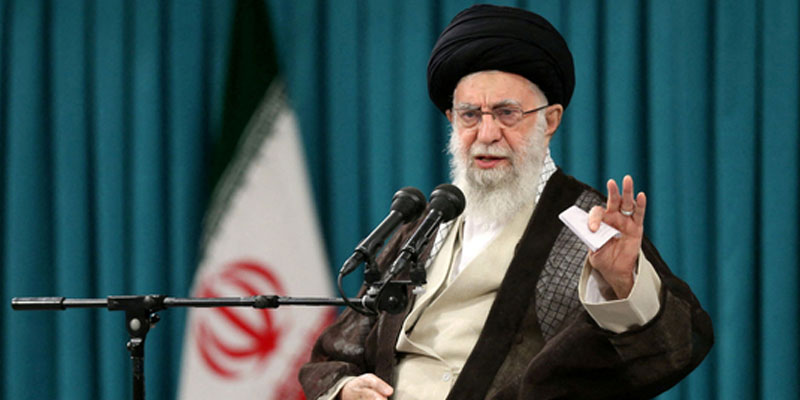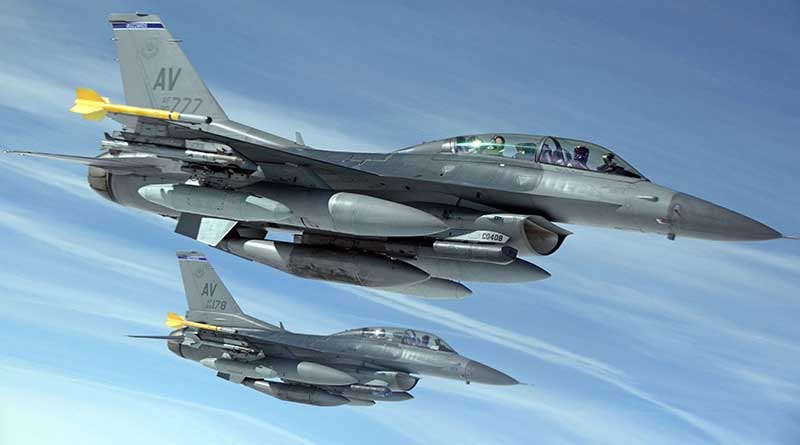Khamenei Declares Victory Over Israel, Warns US After Retaliatory Strike
In his first public remarks since the ceasefire between Iran and Israel, Supreme Leader Ayatollah Ali Khamenei declared Iran’s “victory” over Israel and described the Islamic Republic’s retaliatory strike on a key US military base in Qatar as a “slap to the US.” The address, televised nationwide, marked a sharp escalation in rhetoric and underscored Tehran’s defiance following a brief but dangerous regional war.
Speaking after a 12-day conflict that saw Israel pounding Tehran and the US intervening militarily, Khamenei said, “Surrender will never happen. It is not about enrichment or missiles — it is about Iran refusing to kneel.”
The conflict culminated in Operation Midnight Hammer, a surprise US offensive that targeted three Iranian nuclear facilities, prompting Iran’s retaliatory missile strike on Al Udeid Air Base in Qatar, a major American military hub in the region.
A Dangerous Cycle of Attack and Retaliation
Khamenei emphasized the symbolic and strategic significance of the Al Udeid strike, calling it evidence that Iran “has access to key US centers in the region and can act when necessary.” The retaliatory move was carefully calibrated — preceded by a warning — ensuring no casualties and limited damage, a gesture seen by analysts as a calculated signal rather than an escalation.
Still, the message was clear. “If any aggression occurs again,” Khamenei warned, “the enemy will pay a heavy price.”
The Supreme Leader also praised Iran’s performance during the war, saying the Zionist regime [Israel] was nearly destroyed and only survived due to direct US intervention. “The US joined the war not out of strategy,” he claimed, “but to save a collapsing Israel. Yet it gained nothing.”
Ceasefire: Brokered Calm or Tactical Pause?
The war halted on its 12th day after an emergency US diplomatic effort led by President Donald Trump. Trump, speaking at a NATO summit, confirmed that both Tehran and Tel Aviv had agreed to a ceasefire, though he expressed skepticism about long-term peace.
“We’re not interested in talks unless there’s real change,” Trump said, adding that US airstrikes had “crippled Iran’s nuclear programme.” Despite this, he confirmed that US and Iranian officials are expected to talk next week, a move Tehran has not publicly acknowledged.
While some hope the ceasefire opens a window for future diplomacy, others warn that tensions remain high and the risk of renewed conflict is real.
Behind the Curtain: Nuclear Tensions and Missed Talks
The origins of the flare-up trace back to a cancelled sixth round of nuclear negotiations in Oman earlier this month. Talks were derailed after Israel launched a pre-emptive strike on Iran, triggering a chain of events that dragged both the US and Iran directly into conflict.
The US strikes on Iranian nuclear facilities shocked Tehran, which had not expected Washington to act militarily, especially under a Trump administration previously seen as reluctant to restart hostilities. In response, Iran opted for a limited strike — targeting a symbolically important base while avoiding massive escalation.
Khamenei went into hiding during the initial days of Israeli attacks, operating from a secure underground bunker. His reappearance and confident tone reflect Tehran’s belief that it has emerged stronger — politically and strategically — in the face of combined Israeli-American pressure.
A Conflict Paused, Not Resolved
Khamenei’s defiant speech and the US’s measured response underscore the fragile and unresolved nature of the Middle East’s most dangerous standoff. Both sides claim victory — Iran for surviving and retaliating, the US for damaging Iran’s nuclear infrastructure without sparking a wider war.
Yet the underlying tensions remain deeply intact: Iran refuses to surrender or scale back its nuclear ambitions, while the US insists on containment. The ceasefire may have halted missiles, but it hasn’t healed mistrust.
The coming weeks — especially any possible talks — will reveal whether this was a temporary pause or the beginning of a new strategic chapter. For now, both Washington and Tehran appear to have stepped back from the brink — but neither has stepped down.
(With agency inputs)



















